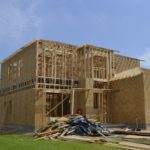I was in a Zoom gathering last night, during which a presenter suggested that one key to better Christian engagement with environmental and ecological concerns is the God-People-Land triangle present in (and presupposed by) the Bible (especially the Hebrew scriptures).
This is a good and helpful reminder–that a more just and healthy activism is aided by a spirituality that notices and names our shared ecological environment as part of our divine-human relationship. There is no spirituality without ecology, we might say. (And no ecology without spirituality!)
For us, on this site, the three dimensions of shalom (well-being, justice, and integrity) always includes four overlapping relationships–with God, with others, with nature, with ourselves. And any movement toward shalom, including environmental shalom, will be hindered if one of those relationships is left out or undeveloped. Conversely, movement toward shalom will be more rewarded if it includes robust engagement in each of these four relationships.
We could put this in an even stronger way: the very identity of God, people, and place, are wrapped up with one another. And this means, how we perceive, imagine, and describe ourselves, or the environment, or the divine will be partial (at best) and misleading (at worst) if we don’t attend to the relational connections among all three realities. In other words, we can’t just take any old conceptions of God, people, nature, and then connect them to one another, and think that this will lead to a better ecological practice. (The presenter certainly didn’t think this, by the way.)
What we need, then, is, after we’ve connected God, people, and place, perceiving their essential interrelatedness, we must then begin the hard work of reconsidering what “God” means, if God is essentially related to nature; what “nature” means if essential related to the divine; what “human being” mean if intrinsically related to both God and nature. This is the work of imaginatively and creatively re-working our inherited theological formulae.
Better Christian ecological practice will be helped by those Christians who wish to persist in traditional understandings of God, humanity, nature, making better connections among them, recognizing an important relationship within them. But it might be helped even more by a spiritual and theological “re-visioning” of God (away from a transcendent and transactional deity), humanity (away from the unencumbered and autonomous individual), and nature (away from the inert “stuff” that is to be extracted for human manipulation).







Genesis explores relationships between God and nature, God and people, and people with people. God is shown as the one true sovereign over all creation: faith in God is close linked in those interrelationships, inclusively with ecology, from this beginning.
The 3 dimensions of Shalom you mention, well being, justice and integrity, could certainly be explored in 4 ways that relate.
We discern a deep connectedness in/with the Godhead as we find God in/with/& others, find God in/with/& nature, and find God in/with/& ourselves; and we see these 4 ways may help us to explore God.
How God relates in/with Jesus, and in/with the Holy Spirit, (personal, wounded, powerful etc) how we relate in God to other people, and in God to self (compassion, togetherness, separation etc) and how God relates in/with the universe (ownership, protection etc).
I think we need this kind of easy start point, from which to re-member God. They seem to draw the 4 aspects closer together, closer to us, and to the here and now.
I agree we need to work on the theology, we also could keep working on making words and explanations relatable as far as possible, to reach as many people as possible.
Thanks for sharing, Peg. We seem to be on the same wavelength. I think you’ll find many of your comments echoed and amplified in our podcast episodes (if you haven’t checked them out yet).